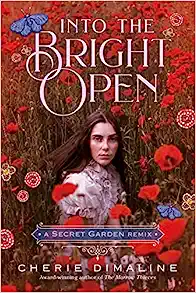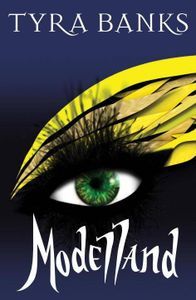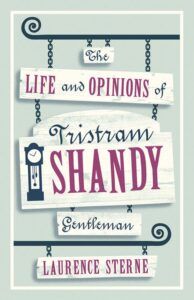
What If Authors Covered Books Like Musicians Cover Songs?
Covers are usually associated with songs, but many people have talked about authors covering books originally written by others, often Terry Pratchett — and as a massive Discworld fan myself, I can completely understand wanting to see his irreverent take on other classic books. In fact, Pratchett did indeed come close to writing covers of two well-known works, in his sadly long-lost Pride and Prejudice/Lord of the Rings crossover fanfic.
Terry Pratchett is not the only author to dabble in covers, either. In fact, many examples of what we think of as great works are retellings of existing stories. Beowulf was part of the oral tradition of poetry long before an unknown writer jotted it down. Many of Shakespeare’s best-known plays are “covers” of older stories; Hamlet is based on a Norse tale by Saxo Grammaticus, Othello was derived from Cinthio’s Un Capitano Moro, and Luigi da Porto wrote the story that provided the inspiration for Romeo and Juliet. Literary “covers” have made it into the modern era; Stephen Fry’s The Stars’ Tennis Balls is a retelling of The Count of Monte Cristo, Joanna Trollope reworked Austen’s Sense and Sensibility, and Jeanette Winterson’s Frankisstein transports Shelley’s classic to a cryogenics lab.
Reading modernisations or reimaginings is always fun, and can sometimes fill gaps in representation or address problematic aspects of the original. The Remixed Classics series is one of the best recent examples of this; authors from marginalised backgrounds retell stories, such as The Secret Garden (remixed by Cherie Dimaline as Into the Bright Open) or Treasure Island (A Clash of Steel by C. B. Lee), challenging the racism or heteronormativity of the originals and bringing in marginalised perspectives that put a new spin on the stories. However, while retellings are definitely popular, the discussion on literary covers seems to suggest that in addition to reinterpretations, readers would love to see a straight-up re-release of an existing story, using the skills of a different author. Where remixes and retellings draw inspiration from existing stories, a “cover” would stick much closer to the original in terms of plot, but told in a different style/voice. The idea of an author covering a book the way musicians cover songs got me thinking about the books I’d like to see tackled by a completely different author.
Many of the people in the original “literary covers” post seemed to go for books they already enjoyed, covered by authors they also loved — The Hitchhiker’s Guide to the Galaxy by Terry Pratchett, for example. While I can see where they’re coming from, I think this would be a waste; Adams and Pratchett were both comedic geniuses whose senses of humour chimed a little too closely to make a cover worth it. (I would have loved to see a collaboration between the two instead, but I expect that Pratchett would have become far too exasperated with Adams’s notorious habit of missing deadlines by a county mile.) Personally, if literary covers were a thing, I’d like to see authors I love covering books that I really don’t like.
Literary covers would mean the opportunity to fix books that fall short of expectations, or pick up on something interesting in an otherwise meh story and run with it. One of the things that exasperated me most about Ernest Cline’s blockbuster Ready Player One was that it centred around literally the most boring character in the novel’s fictional world; Wade Watts, a self-centred, tedious teen boy who wins a contest because he’s the best at memorising trivia. I would love to see a Ready Player One cover written by Malorie Blackman that focuses on Aech, a Black teenage girl negotiating the OASIS by setting her avatar as a white boy in an attempt to survive in a dystopian, late-stage-capitalist hellscape. Blackman has a background in computing and has written several excellent sci-fi novels, as well as the brilliant Noughts and Crosses series, so she would be the perfect choice to tackle both the sci-fi aspects of Ready Player One and explore the commentary on societal racism and sexism that Cline completely sidestepped in his take — though perhaps that endeavour would require more of a retelling than a simple cover.
Of course, bad books can still be enjoyable. After reading along with the first season of Bad Author Book Club, I have a mile-wide soft spot for Modelland by Tyra Banks — it’s terrible, but it’s still good fun. However, it annoyingly leaves about a million loose ends, has a plot structure that makes a Jenga tower look well put together, and most of the bizarre worldbuilding goes nowhere, loading apparent Chekov’s Guns that are never actually fired. In my imagined literary cover, I’d have Jeff Noon and Suzanne Collins collaborate on their version of Modelland. Suzanne Collins, as we learned from The Hunger Games, can write a tightly-plotted, fast-paced dystopia, centring around a proactive and relatable heroine. Jeff Noon’s canon of cyberpunk novels like Vurt and The Automated Alice shows that he can bring in the weird surrealism while weaving it into the plot and making every scene count.
My final ideal literary cover isn’t necessarily of a bad book — at least, I can’t be sure if it’s bad or not, because I was never able to finish it. When I was studying English Literature at university, I had to read The Life and Opinions of Tristram Shandy, Gentleman, the famously digressive novel by Laurence Sterne. And yes, I get that the whole (incredibly long) novel is meant to be a joke about Shandy’s own inability to tell a straightforward story — but good grief, that joke gets old fast. To bring the discussion of literary covers back to the beginning, I would love to see Douglas Adams’s Tristram Shandy: it would be much funnier, much snappier, and, crucially, a lot shorter.
If thoughts of literary covers have whetted your appetite for retelling the classics, check out our list of 8 of the Best Frankenstein Retellings. Like your reinterpretations with a spin on gender? Try The Best Gender-Flipped Retellings.












